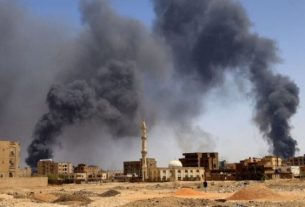and other brutal tactics” to repress their citizens overseas, including assassinations, abductions, assaults, detentions and unlawful deportations.
Their report documented nearly 900 incidents of direct and physical repression committed by 38 governments in 91 countries since 2014, with China, Turkey, Tajikistan, Russia and Egypt ranked as the most prolific offenders.
Western governments have maintained high-level diplomatic cooperation with perpetrator states, including on migration policies, despite such cases, the report noted.
“More authoritarian governments are attempting to exert control over diaspora and exile communities,” said Michael Abramowitz, President of Freedom House.
“This latest research shows that the threat posed by transnational repression is not going away, and that democratic societies must work harder to protect themselves and their fundamental values.”
In August, US authorities unearthed a plot to kill Iranian journalist and anti-government activist Masih Alinejad while she was living in New York.
Meanwhile, the opposition news channel Iran International was forced to relocate from London in February amid “terror threats” from the Islamic Republic.
China was reportedly the world’s biggest overseas represser, accounting for 30% of all cases recorded by Freedom House since 2014.
Beijing has particularly attempted to pressure other states into deporting Uyghurs, a Muslim minority from China’s Xinjiang region who have been subjected to “genocide”, according to Washington.
Amid its devastating war in Ukraine, Russia has also intensified its repression of exiles, while Turkey has abducted more people through renditions than any other state.
Ankara has been chasing its citizens abroad since the failed 2016 coup attempt against President Recep Tayyip Erdogan.
“People who criticise authoritarian regimes, whether they are professional journalists or ordinary citizens, are often singled out for harassment and even violence,” said Yana Gorokhovskaia, the report’s co-author.
“The world cannot allow these repressive governments to restrict media freedom and personal expression abroad even as they shut down independent outlets at home.”
Journalists account for 11% of all cases of transitional repression, targeted in 97 incidents overall.
This figure includes the Saudi Journalist Jamal Khashoggi, who was allegedly murdered and dismembered inside Saudi Arabia’s Istanbul consulate in 2018.
The report recommended several steps that governments, civil society organisations, and technology companies could take to better protect exiles and diasporas.
These included clearer definitions of transnational repression to allow officials to recognise and respond to the problem, alongside ensuring potential victims are able to seek asylum.
Targeted sanctions and additional security measures are also proposed.__Courtesy EuroNews





